BMW X3 vs VW ID.7 Touring - Differences and prices compared
Costs and Efficiency:
Price and efficiency are often the first things buyers look at. Here it becomes clear which model has the long-term edge – whether at the pump, the plug, or in purchase price.
VW ID.7 Touring has a slight advantage in terms of price – it starts at 47100 £, while the BMW X3 costs 51300 £. That’s a price difference of around 4196 £.
As for range, the VW ID.7 Touring performs decisively better – achieving up to 689 km, about 601 km more than the BMW X3.
Engine and Performance:
Power, torque and acceleration say a lot about how a car feels on the road. This is where you see which model delivers more driving dynamics.
When it comes to engine power, the BMW X3 has a slightly edge – offering 398 HP compared to 340 HP. That’s roughly 58 HP more horsepower.
In acceleration from 0 to 100 km/h, the BMW X3 is to a small extent quicker – completing the sprint in 4.60 s, while the VW ID.7 Touring takes 5.50 s. That’s about 0.90 s faster.
In terms of top speed, the BMW X3 performs clearly perceptible better – reaching 250 km/h, while the VW ID.7 Touring tops out at 180 km/h. The difference is around 70 km/h.
There’s also a difference in torque: VW ID.7 Touring pulls minimal stronger with 679 Nm compared to 670 Nm. That’s about 9 Nm difference.
Space and Everyday Use:
Whether family car or daily driver – which one offers more room, flexibility and comfort?
Seats: offers more seating capacity – vs .
In curb weight, BMW X3 is somewhat lighter – 1930 kg compared to 2191 kg. The difference is around 261 kg.
In terms of boot space, the VW ID.7 Touring offers slight more room – 605 L compared to 570 L. That’s a difference of about 35 L.
In maximum load capacity, the VW ID.7 Touring performs minimal better – up to 1714 L, which is about 14 L more than the BMW X3.
When it comes to payload, BMW X3 to a small extent takes the win – 570 kg compared to 465 kg. That’s a difference of about 105 kg.
Who wins the race?
The VW ID.7 Touring proves to be outperforms in nearly all aspects and therefore becomes our DriveDuel Champion!
VW ID.7 Touring is the better all-rounder in this comparison.
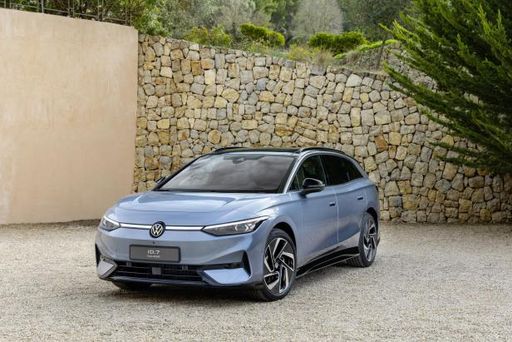 @ Volkswagen
@ Volkswagen
VW ID.7 Touring
Costs and Consumption
View detailed analysis
Engine and Performance
View detailed analysis
Dimensions and Body
View detailed analysis
BMW X3
The BMW X3 mixes Bavarian poise with everyday practicality, delivering a composed ride and a cabin that feels both premium and lived-in. It’s the sort of SUV that lets you enjoy sporty handling without sacrificing family-friendly space, so you get fun and sense in one neat package.
details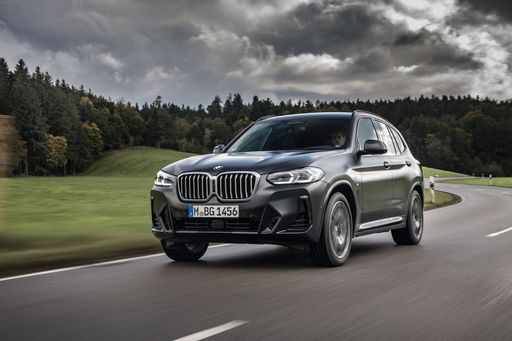 @ BMW Group Press
@ BMW Group Press
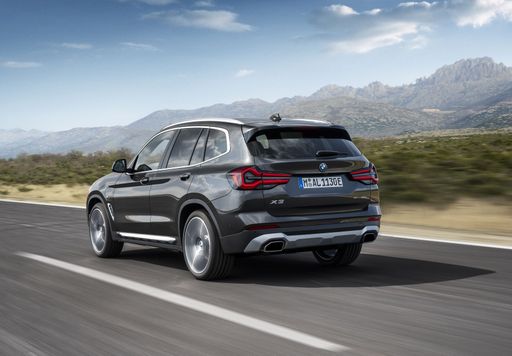 @ BMW Group Press
@ BMW Group Press
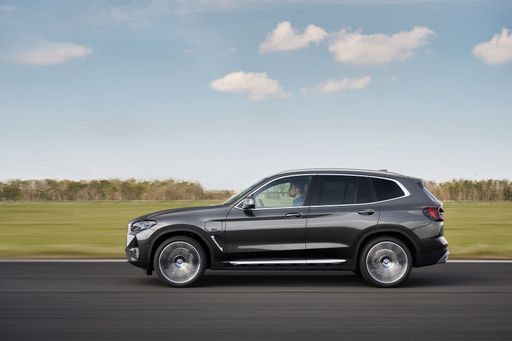 @ BMW Group Press
@ BMW Group Press
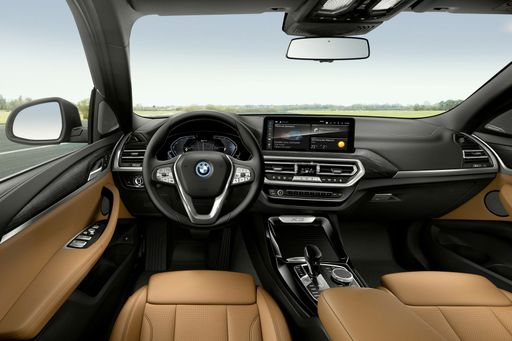 @ BMW Group Press
@ BMW Group Press
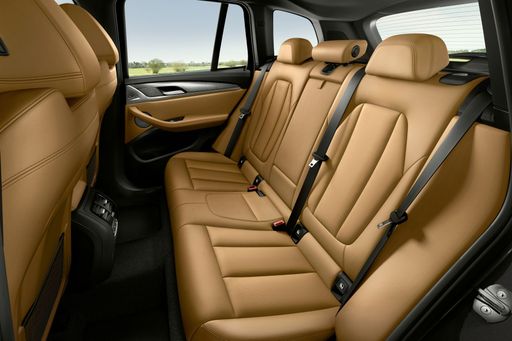 @ BMW Group Press
@ BMW Group Press
VW ID.7 Touring
The VW ID.7 Touring blends sleek, aerodynamic fastback looks with estate practicality, delivering an electric family car that looks grown-up and feels refined. Inside it's calm and spacious with clever storage and modern tech, swallowing suitcases and weekend plans with ease — a sensible, slightly flashy choice for buyers who want electric comfort without giving up practicality.
details @ Volkswagen
@ Volkswagen
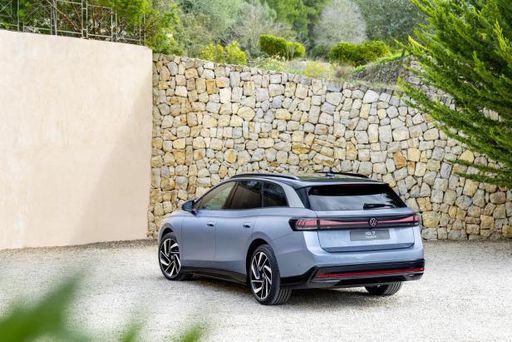 @ Volkswagen
@ Volkswagen
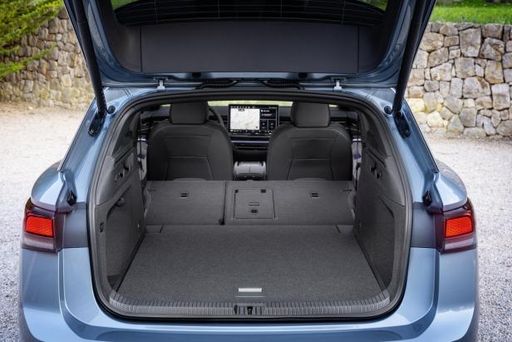 @ Volkswagen
@ Volkswagen
 @ BMW Group Press
@ BMW Group Press
|
 @ Volkswagen
@ Volkswagen
|
|
|
|
Costs and Consumption |
|
|---|---|
|
Price
51300 - 72400 £
|
Price
47100 - 54900 £
|
|
Consumption L/100km
2.8 - 7.7 L
|
Consumption L/100km
-
|
|
Consumption kWh/100km
-
|
Consumption kWh/100km
14 - 16.6 kWh
|
|
Electric Range
88 km
|
Electric Range
584 - 689 km
|
|
Battery Capacity
19.70 kWh
|
Battery Capacity
77 - 86 kWh
|
|
co2
64 - 175 g/km
|
co2
0 g/km
|
|
Fuel tank capacity
50 - 65 L
|
Fuel tank capacity
-
|
Dimensions and Body |
|
|---|---|
|
Body Type
SUV
|
Body Type
Estate
|
|
Seats
5
|
Seats
5
|
|
Doors
5
|
Doors
5
|
|
Curb weight
1930 - 2140 kg
|
Curb weight
2191 - 2336 kg
|
|
Trunk capacity
460 - 570 L
|
Trunk capacity
605 L
|
|
Length
4755 mm
|
Length
4961 mm
|
|
Width
1920 mm
|
Width
1862 mm
|
|
Height
1660 mm
|
Height
1549 - 1551 mm
|
|
Max trunk capacity
1600 - 1700 L
|
Max trunk capacity
1714 L
|
|
Payload
570 kg
|
Payload
459 - 465 kg
|
Engine and Performance |
|
|---|---|
|
Engine Type
Petrol MHEV, Diesel MHEV, Plugin Hybrid
|
Engine Type
Electric
|
|
Transmission
Automatic
|
Transmission
Automatic
|
|
Transmission Detail
Automatic Gearbox
|
Transmission Detail
Reduction Gearbox
|
|
Drive Type
All-Wheel Drive
|
Drive Type
Rear-Wheel Drive, All-Wheel Drive
|
|
Power HP
197 - 398 HP
|
Power HP
286 - 340 HP
|
|
Acceleration 0-100km/h
4.6 - 7.8 s
|
Acceleration 0-100km/h
5.5 - 6.7 s
|
|
Max Speed
215 - 250 km/h
|
Max Speed
180 km/h
|
|
Torque
330 - 670 Nm
|
Torque
545 - 679 Nm
|
|
Number of Cylinders
4 - 6
|
Number of Cylinders
-
|
|
Power kW
145 - 293 kW
|
Power kW
210 - 250 kW
|
|
Engine capacity
1995 - 2998 cm3
|
Engine capacity
-
|
General |
|
|---|---|
|
Model Year
2024 - 2025
|
Model Year
2024
|
|
CO2 Efficiency Class
F, E, B
|
CO2 Efficiency Class
A
|
|
Brand
BMW
|
Brand
VW
|
What drive types are available for the BMW X3?
The BMW X3 is offered with All-Wheel Drive.
The prices and data displayed are estimates based on German list prices and may vary by country. This information is not legally binding.
